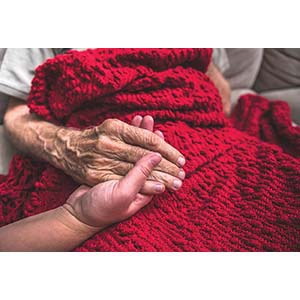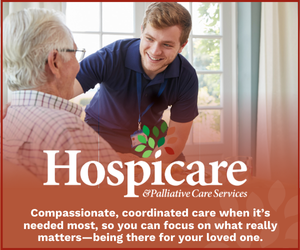(607NewsNow) — Care and comfort are vital components of tending to a loved one with a serious illness. That’s especially so when individuals who are ill are approaching the end of their lives.
When an aging family member is nearing the end of his or her life, many families rely on hospice care to provide a level of care and comfort that ensures the person’s final days are less challenging than they might otherwise be. Families who have never had to rely on hospice care may have some common questions, which the National Institute on Aging has answered to simplify this sometimes-challenging period in the life of aging individuals and their families.
What is hospice care?
The NIA notes that hospice care is for people with serious illnesses who choose to cease or continue treatment. That’s an important distinction, as a misconception regarding hospice care is that it’s reserved for people who have stopped receiving treatment for their illness.
Where do people receive hospice care?
Another misconception regarding hospice care is that it’s provided exclusively at facilities that specialize in hospice services. Though the NIA notes nursing homes, assisted living facilities and even hospitals may provide hospice care, it’s also possible for individuals to receive such care at home. Receiving hospice care at home is a significant benefit for many aging individuals who prefer the creature comforts of their own homes to the settings at hospitals and other facilities. Though facilities that specialize in providing hospice care often go to great lengths to establish peaceful, comfortable settings, many families like having the option that allows an aging relative to receive hospice care at home, where they might be able to enjoy more frequent visits from loved ones.
Which services are included in hospice care?
The NIA notes that an assortment of services fall under the umbrella of hospice care. Pain relief, physical or occupational therapy, emotional and spiritual support, and advance care planning are some of the services noted by the NIA that are typically offered as hospice care. Families are encouraged to discuss specific services their loved one may need with their loved one’s physician. That information can then be used to find the right hospice care arrangement.
Are medications stopped upon entering hospice?
The NIA indicates that medication to cure or control a serious illness will stop when a person enters hospice care. For example, a cancer patient will no longer receive chemotherapy after entering hospice care. However, medications to treat conditions or symptoms unrelated to a person’s illness can continue to be administered.
Is hospice care 24/7?
The NIA notes that hospice care is rarely a round-the-clock service. Though a hospice care team member may be available at all hours, the NIA indicates that most of the of the day-to-day care is provided by family and friends. However, families considering a facility outside an individual’s home are encouraged to ask questions regarding round-the-clock care.
Hospice care can help aging individuals live comfortably as they approach the end of their lives. More information about hospice care can be found at nia.nih.gov.




